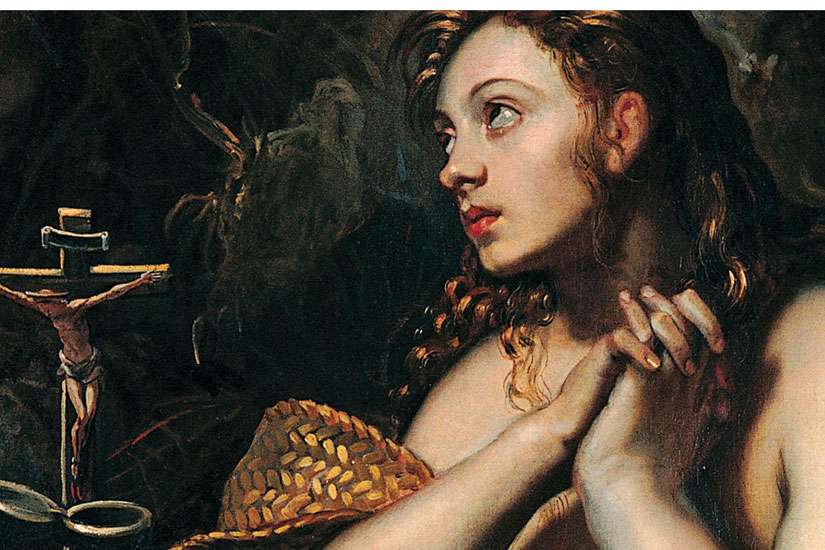But nobody is arguing against Pope Francis who declared on June 10 that the Apostle to the Apostles deserves a feast.
“This is an interesting move for Francis,” said Doris Kieser, a theologian at St. Joseph’s College, University of Alberta in Edmonton.
The Pope’s move is an attempt to get the Church thinking and talking about women.
“This decision, in the current ecclesial context, seeks to reflect more deeply upon the dignity of women,” wrote Archbishop Arthur Roche, secretary of the Congregation for Divine Worship and the Discipline of the Sacraments, in an explanatory note that accompanied the Pope’s announcement declaring July 22 should henceforth be observed as Mary Magdalene’s feast.
“This woman should have the same rank of feast as that given to the celebration of the Apostles in the General Roman Calendar and that the special mission of this woman should be underlined, she who is an example and model for all women in the Church,” wrote Roche.
Rediscovering Mary Magdalene as part of Jesus’ inner circle should begin with a close reading of the Gospels. Reading the Bible should put an end to the mistaken notion that Mary Magdalene was a reformed prostitute, said John McLaughlin, a Scripture scholar at Toronto’s University of St. Michael’s College. There is no hint anywhere in the Bible that she was a prostitute or in any way a loose woman, he said.
“The Gospels are clear, however, that Mary Magdalene was a faithful disciple of Jesus who provided for Him financially, remained with Him during the crucifixion while the Apostles fled, witnessed His burial, returned to anoint His body for burial, was the first person to witness the resurrected Jesus and believed He was risen when the Apostles did not,” wrote McLaughlin in an e-mail to The Catholic Register.
“Those are things I think we should celebrate.”
The myth of Mary Magdalene as a prostitute began with a homily given by Pope Gregory I in 591. Gregory conflated three different women in the Gospels — Mary the sister of Martha, the unnamed sinner who washed Jesus’ feet at a dinner given by a prominent Pharisee and Mary Magdalene.
Scholars have worked ever since to untangle these three separate women.
There are no Catholic parishes in Toronto named after Mary Magdalene, but there is one Anglo-Catholic Anglican church called St. Mary Magdalene. That parish greeted news of her feast day with joy and satisfaction, said rector Rev. Canon David Harrison.
“It doesn’t change any of our practices, because we already make a big deal of her feast day in the middle of the summer,” Harrison said.
Like any parish, St. Mary Magdalene is happy to see its patron promoted in the universal Church.
“I can see why he’s doing it,” said Harrison. “To reclaim the apostolicity of women is actually a very good and fruitful and helpful thing.”
While the idea of Mary Magdalene as Apostle to the Apostles has been fashionable in Catholic circles since St. John Paul II promoted the idea in his 1988 encyclical Mulieris Dignitatem, it has been a constant tradition since ancient times in the Orthodox and Catholic Eastern-rite churches, Harrison said.
“I think that that has been an important icon of the place of women in the history of salvation,” he said.
In a world that cannot accept separate, hidden and demonstrably inferior roles for women, a Catholic conversation about St. Mary Magdalene may lead to more fruitful ways of thinking about the role of women in the Church, said Kieser.
“What will this mean for women in the Church? I don’t honestly know,” said the expert in Marian theology. “Could this be a sign of a new feminism in the Church? Only if we extract the decades, centuries, millennia of women’s works of faith from our perception of Church. Women have carried on the work of the Magdalene since the earliest days of the Church.”
Kieser suspects that the best way to understand the Pope’s intentions is to view it through the lens of mercy.
“The Magdalene’s humility and mercy before God are, I suspect, more focused on her conversion towards the message of Jesus than on her female sex,” she said.
“She was faithful to her calling and to Jesus because she chose to make the message of Christ her own. Her dignity is first and foremost rooted in her creation in the image of God and her commitment to choosing love over fear or indifference. That she was female seems to indicate Jesus’ inclusion of women in His inner circle.
“Perhaps the sign of mercy there is that the categories of sex and gender operating in His time or today did not define Jesus’ ministry at a time that it would have been simple, perhaps expected, to do so.”


